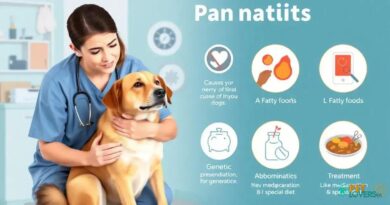What is Hygiene tips
What is Hygiene Tips for Dogs?
Hygiene tips for dogs encompass a range of practices aimed at maintaining your pet’s cleanliness and overall health. Regular grooming, bathing, and dental care are essential components of a comprehensive hygiene routine. By implementing these practices, pet owners can prevent various health issues, enhance their dog’s comfort, and promote a positive bond between them and their furry friends.
Importance of Regular Grooming
Regular grooming is crucial for your dog’s hygiene. It helps remove dirt, debris, and loose fur, which can accumulate and lead to skin irritations or infections. Depending on the breed, some dogs may require more frequent grooming than others. Long-haired breeds, for instance, may need daily brushing to prevent matting, while short-haired breeds might only need weekly grooming sessions. Consistent grooming not only keeps your dog looking their best but also allows you to check for any unusual lumps, bumps, or skin conditions.
Bathing Your Dog: Frequency and Techniques
Bathing is another vital aspect of dog hygiene. The frequency of baths can vary based on your dog’s breed, activity level, and skin condition. Generally, dogs should be bathed every one to three months. However, if your dog enjoys outdoor activities or has a tendency to get dirty, more frequent baths may be necessary. When bathing your dog, use a shampoo specifically formulated for dogs to avoid skin irritation. Ensure that you rinse thoroughly to remove all soap residue, as leftover shampoo can lead to skin problems.
Dental Care: A Key Component of Hygiene
Dental hygiene is often overlooked but is essential for your dog’s overall health. Regular brushing of your dog’s teeth helps prevent plaque buildup, gum disease, and bad breath. Ideally, you should brush your dog’s teeth daily, but even a few times a week can make a significant difference. Additionally, consider providing dental chews or toys that promote oral health. Regular veterinary check-ups should also include dental examinations to catch any potential issues early.
Ear Cleaning: Keeping Infections at Bay
Ear hygiene is another critical aspect of your dog’s overall hygiene routine. Dogs with floppy ears or those that swim frequently are more prone to ear infections. Regularly check your dog’s ears for dirt, wax buildup, or signs of infection, such as redness or odor. Use a vet-recommended ear cleaner to gently clean the ears, and avoid using cotton swabs, which can push debris further into the ear canal. Keeping your dog’s ears clean can help prevent painful infections and ensure their comfort.
Nail Trimming: A Necessary Task
Nail trimming is an essential part of dog hygiene that is often neglected. Overgrown nails can cause discomfort and lead to mobility issues. Ideally, you should trim your dog’s nails every 3-4 weeks. If you’re unsure how to trim your dog’s nails safely, consider consulting a professional groomer or veterinarian. Regular nail maintenance not only keeps your dog comfortable but also prevents injuries to both your pet and your home.
Flea and Tick Prevention
Flea and tick prevention is a vital aspect of maintaining your dog’s hygiene and health. These parasites can cause significant discomfort and transmit diseases. Regularly check your dog for fleas and ticks, especially after outdoor activities. Consult your veterinarian for the best preventive treatments, which may include topical solutions, oral medications, or collars. Keeping your dog free of these pests is essential for their well-being and can prevent infestations in your home.
Healthy Diet: The Foundation of Hygiene
A balanced and nutritious diet plays a crucial role in your dog’s hygiene and overall health. Feeding your dog high-quality food that meets their specific needs can improve their skin and coat condition, boost their immune system, and promote good dental health. Always consult your veterinarian for dietary recommendations tailored to your dog’s age, breed, and health status. A healthy diet is the foundation of good hygiene and can help prevent various health issues.
Regular Veterinary Check-ups
Regular veterinary check-ups are essential for maintaining your dog’s hygiene and overall health. These visits allow your veterinarian to monitor your dog’s health, provide vaccinations, and address any concerns you may have. During these check-ups, your vet can also offer advice on grooming, diet, and preventive care tailored to your dog’s specific needs. Keeping up with regular veterinary visits is a proactive approach to ensuring your dog’s hygiene and well-being.




